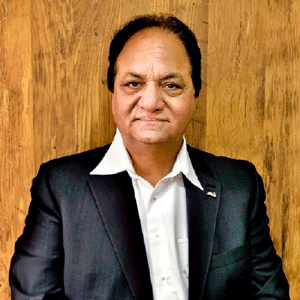
In the dynamic realm of Basmati rice production and export, FMCG (Fast- Moving Consumer Goods) contract manufacturers play a crucial role by expertly converting raw Basmati rice into consumer-ready products that cater to the diverse demands. These specialized manufacturers participate in the entire production process, meticulously overseeing milling to packaging, ensuring unwavering quality, consistency, and compliance with industry standards. Based out of Amritsar, Punjab and established in 1974, Chaman Lal Setia Exports stands as the world's largest private-labeled rice trader and manufacturer.
Having initiated its export endeavors in 1982, Chaman Lal Setia Exports received recognition as an export house from the Ministry of Commerce, Govt. of India in 1989. Further Company has established its third factory in Karnal, Haryana in 1993 which is having 80,000 MT Warehouse capacity, 1 Megawatt installed solar capacity for electricity generation and approx 7500 MT Paddy storage capacity in Silos. The company has evolved into a powerhouse in the Basmati rice industry and is renowned for its flagship brand ‘Maharani’ basmati rice.
In 2012, the company obtained certification for its diabetic-friendly rice product which is low in Glycemic Index under the flagship brand Maharani. Today, the company proudly exports its premium basmati rice to over 90 countries under the Maharani brand or through private labels.
"Our flagship brand, Maharani, is our primary focus, and it's already thriving in 40-41 countries globally; while it may not be as widely recognized in India due to our
substantial export focus, our longstanding presence and expertise make entering the local market a feasible endeavor for us,” adds Rajeev Setia, Joint Managing Director & CFO of Chaman Lal Setia Exports.
Chaman Lal Setia Exports holds global certifications such as the Global Standard for Food Safety, BRC Food Product, ISO 22000: 2005, and HACCP, coupled with U.S. FDA Registration and compliance with USA export SOPs certified by the Ministry of Agriculture, Government of India, as well as Halal, Kosher, and FSSAI certifications. Recognizing the diverse nature of clientele, the company initiates a dialogue to understand the customer's target market, whether it be restaurants, local consumers, or other channels. By gaining insights into their expectations, the company offers tailored guidance on suitable packing, pricing strategies, and rice varieties, such as Pusa Basmati and others. “Drawing on their extensive experience, our team navigates customers through the nuances of the market, advising on optimal choices for different scenarios. By actively engaging in renowned exhibitions worldwide, such as in Dubai, France, Egypt, Germany, Turkey and other regions, we not only strengthen our global presence but also personally connect with our customers, understanding their evolving needs,” asserts Rajeev Setia.
The company's meticulous research team conduct surveys, staying attuned to market dynamics & adopting innovative, economical methods to cultivate Basmati rice
Chaman Lal Setia Exports demonstrates a deep commitment to sustainability and ethical business practices, particularly in addressing the water-intensive nature of rice cultivation. Acknowledging the water challenges associated with traditional rice varieties, the company actively promotes the cultivation of basmati rice, which requires 50 percent less water than nonbasmati varieties. In alignment with government initiatives, the company encourages farmers, especially in Punjab and Haryana, to diversify towards basmati cultivation. In addition to environmental considerations, the company actively participates in Corporate Social Responsibility (CSR) initiatives aligned with eradicating extreme hunger, enhancing livelihoods, rural development, promoting education, and improving sanitation and healthcare facilities.
Recognizing the dynamic nature of global markets and the diverse preferences of customers worldwide, Chaman Lal Setia Exports is contemplating a strategic expansion beyond its core rice business. Understanding the challenges faced by retailers who need a diverse product range to run successful ventures, the company is exploring opportunities in the food industry. “We are open to embracing new ventures without compromising the established rice business. The recent inquiries from customers, expressing interest in additional products, has further fueled our contemplation of venturing into the food industry,” concludes Rajeev.
We use cookies to ensure you get the best experience on our website. Read more...